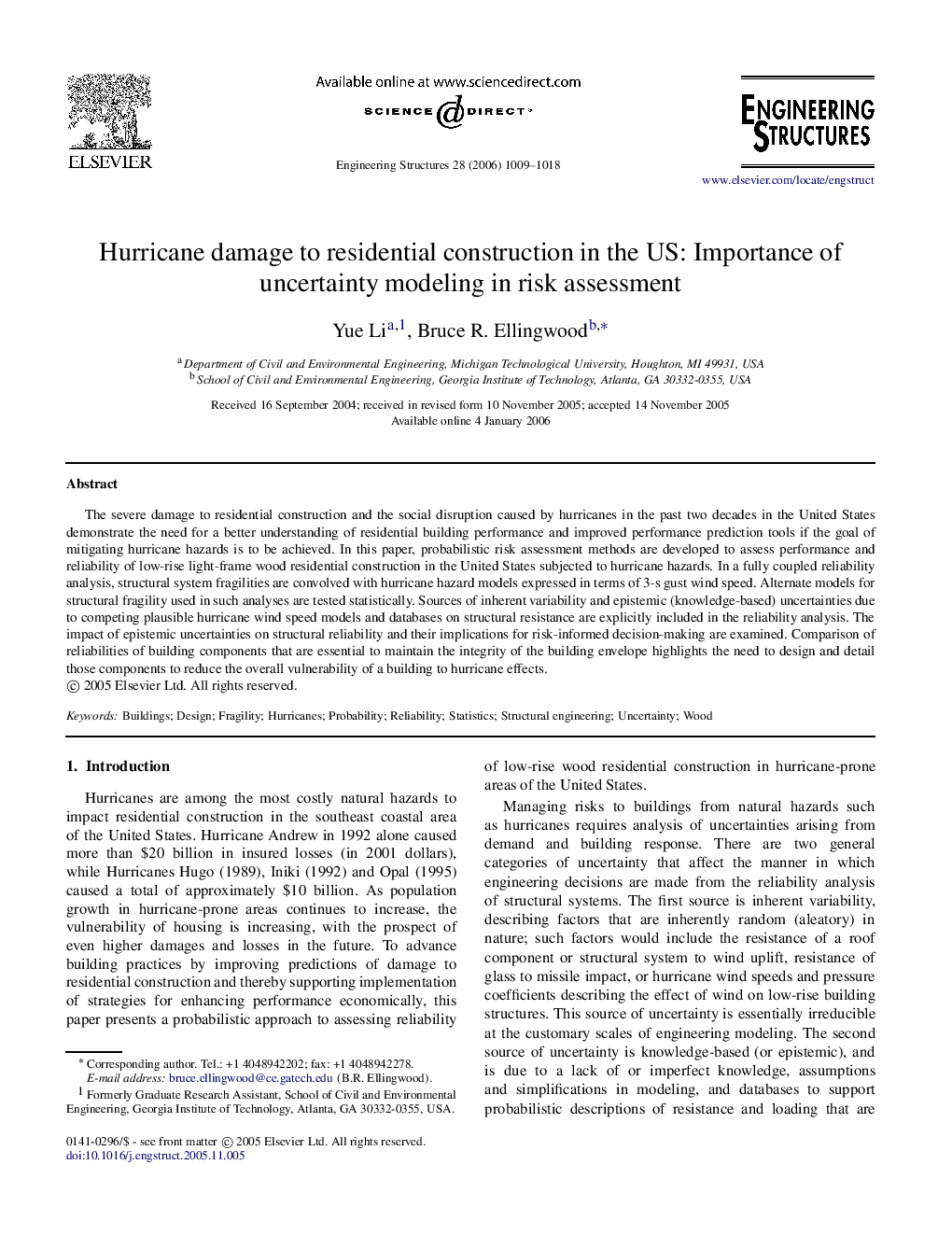| Article ID | Journal | Published Year | Pages | File Type |
|---|---|---|---|---|
| 269429 | Engineering Structures | 2006 | 10 Pages |
The severe damage to residential construction and the social disruption caused by hurricanes in the past two decades in the United States demonstrate the need for a better understanding of residential building performance and improved performance prediction tools if the goal of mitigating hurricane hazards is to be achieved. In this paper, probabilistic risk assessment methods are developed to assess performance and reliability of low-rise light-frame wood residential construction in the United States subjected to hurricane hazards. In a fully coupled reliability analysis, structural system fragilities are convolved with hurricane hazard models expressed in terms of 3-s gust wind speed. Alternate models for structural fragility used in such analyses are tested statistically. Sources of inherent variability and epistemic (knowledge-based) uncertainties due to competing plausible hurricane wind speed models and databases on structural resistance are explicitly included in the reliability analysis. The impact of epistemic uncertainties on structural reliability and their implications for risk-informed decision-making are examined. Comparison of reliabilities of building components that are essential to maintain the integrity of the building envelope highlights the need to design and detail those components to reduce the overall vulnerability of a building to hurricane effects.
